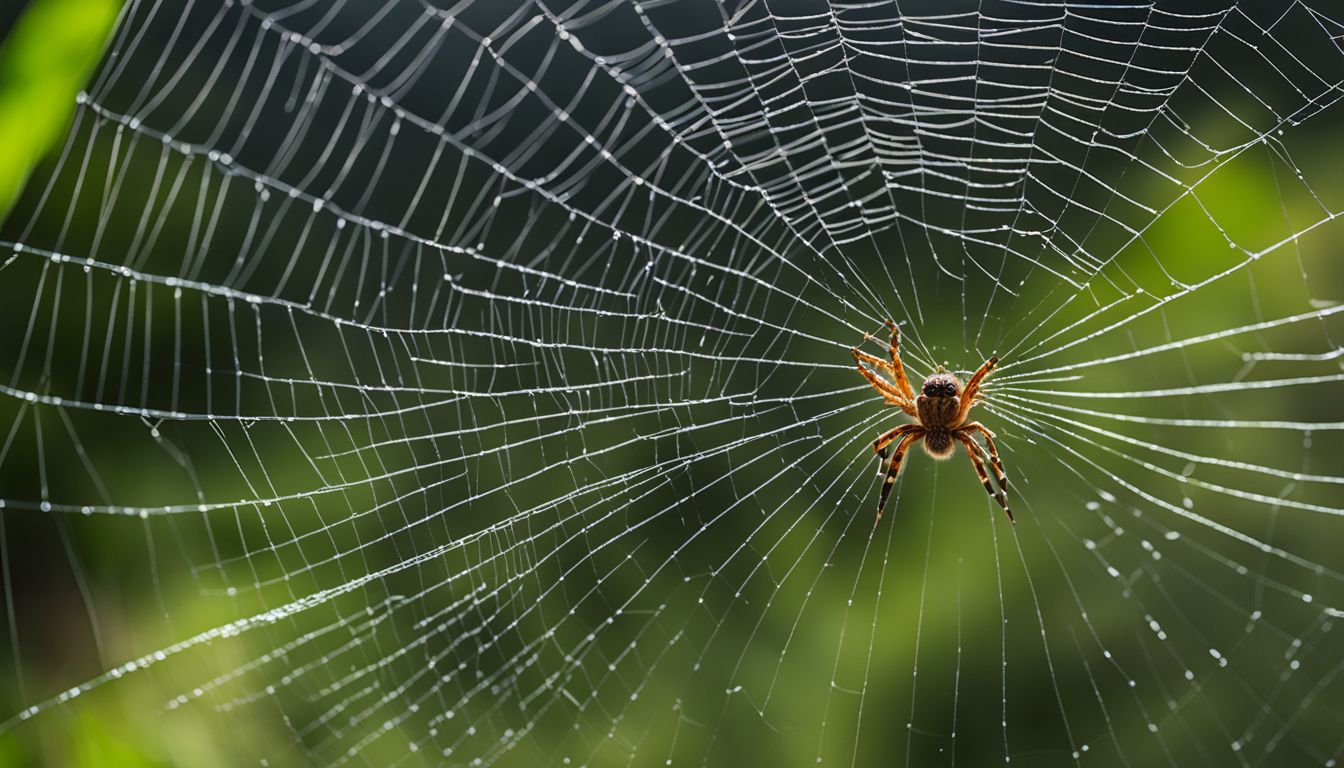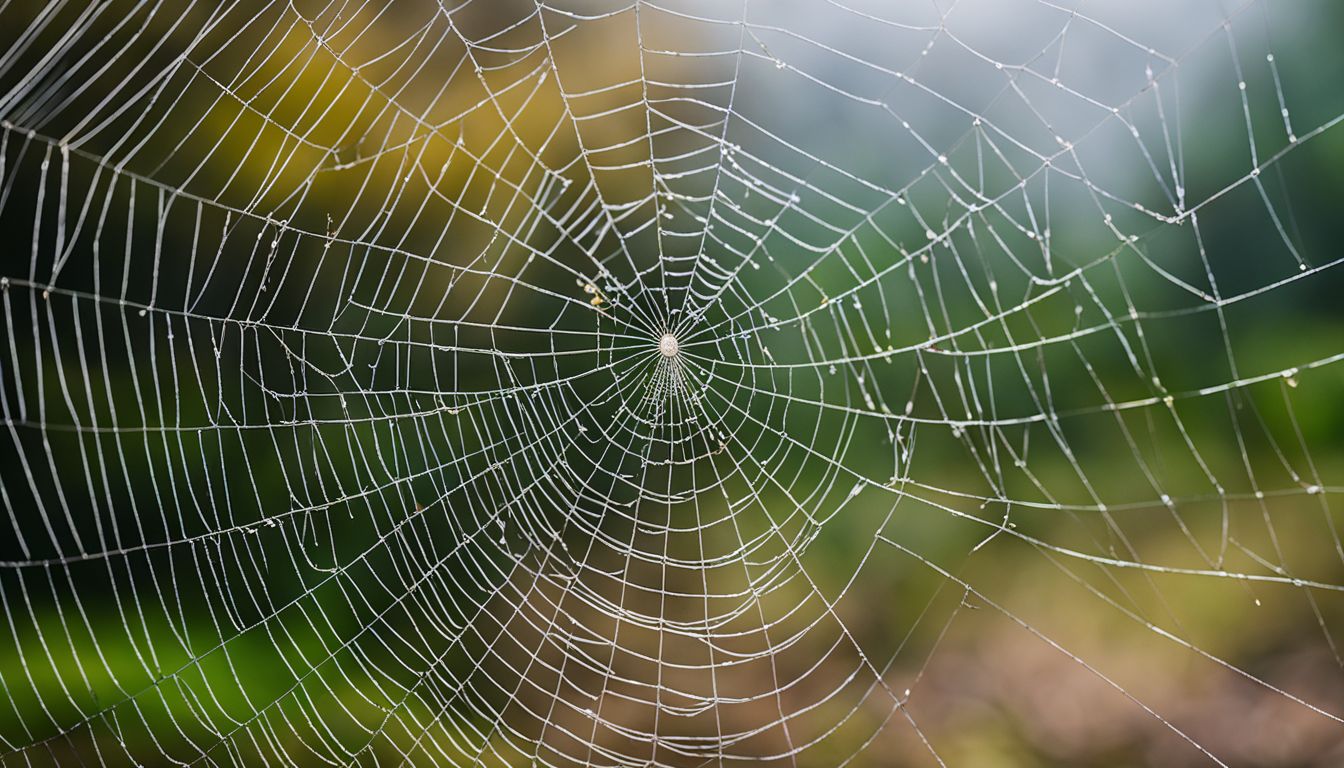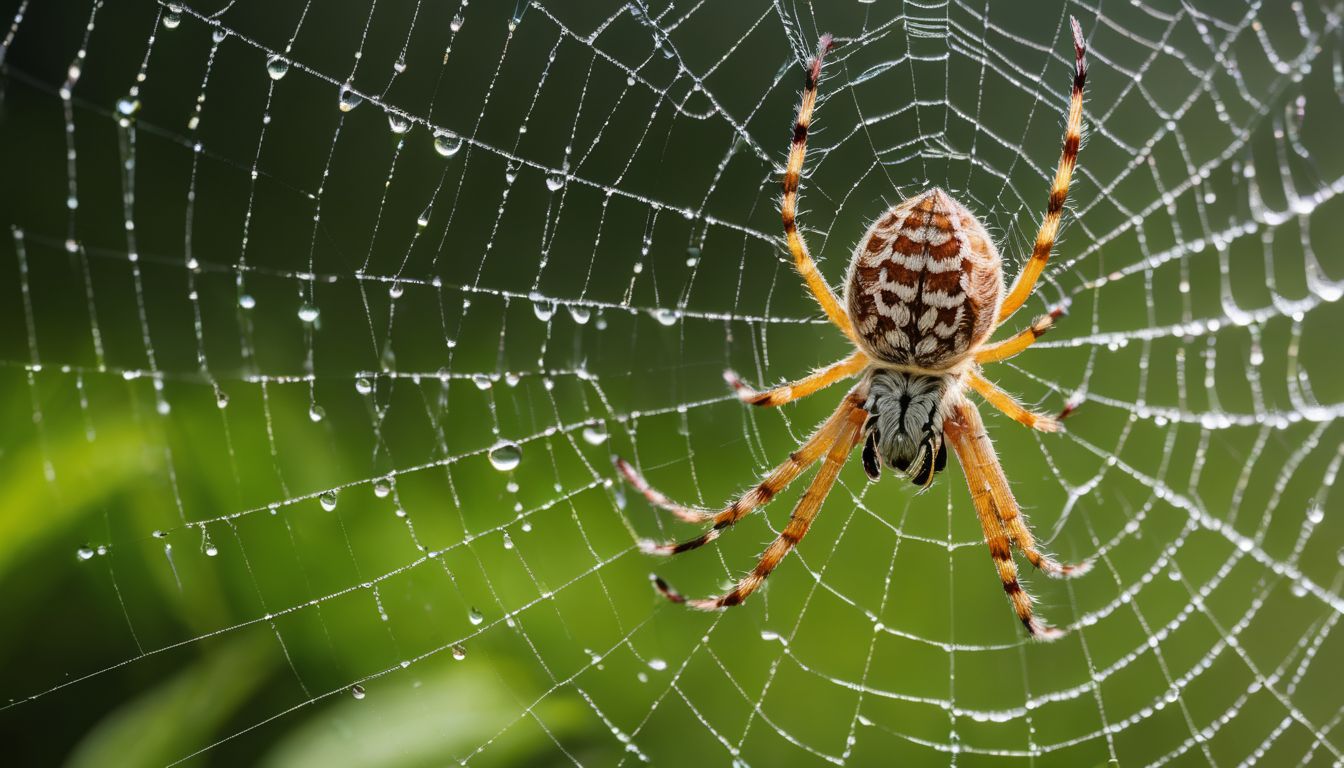Have you ever watched a spider linger motionless in its web and wondered how long it can survive without a meal? Remarkably, some spiders can go for months without eating. This post will unveil the survival secrets of these eight-legged wonders, helping you understand their incredible fasting abilities.
Get ready to be amazed!
Key Takeaways
- Spiders have remarkable fasting abilities, with some species able to survive for weeks or even months without food due to factors such as metabolism, size, and environmental conditions.
- Different spider species exhibit varying survival strategies when deprived of food; from common house spiders lasting several weeks to tarantulas that can go without food for up to 2 years.
- Spiders have low metabolism which helps them endure hunger for extended periods by conserving energy. They can also survive without water for up to 2 months but become weakened and more susceptible to illness when dehydrated.
Understanding Spider Dietary Needs

Spiders are carnivorous creatures, typically preying on insects such as flies, mosquitoes, and cockroaches. They consume their prey by injecting them with digestive enzymes using their chelicerae before sucking out the liquefied insides.
What Do Spiders Typically Eat?
Spiders catch and eat many things. They like insects such as flies, moths, and mosquitoes. Some big spiders even eat frogs, lizards, or birds. Web-building spiders stick to catching insects in their webs.
Other kinds like wolf spiders chase down their prey on the ground. All of these eight-legged hunters are carnivorous, which means they love meat.
Most spiders use their fangs to grab and inject venom into what they catch. This makes the insides of the prey soft so the spider can suck it up like a juice box. Their chelicerae, which are jaw parts with teeth, help them handle their food.
Spiders’ diets help control pest numbers around us too.
How Spiders Consume Their Prey
Now that we know what’s on the menu, let’s see how these eight-legged hunters enjoy their meal. They have a unique way of eating because they can’t swallow whole food. First, spiders catch bugs with their webs or by jumping out at them.
Then, they use sharp mouth parts to inject special juices into the bug. These juices break down the insides of the prey so it turns into a bug soup.
Next, spiders suck up this liquid using their strong mouth parts. It might sound odd, but this is how all spiders eat—from tiny house spiders to big tarantulas. Sometimes they leave bits behind if they’re not too hungry after catching more than they need.
This lets them survive even when food is hard to find later on.
The Remarkable Fasting Abilities of Spiders

Spiders have remarkable fasting abilities, with some species able to survive for weeks or even months without food. Factors such as metabolism, size, and environmental conditions play a role in their ability to endure long periods of hunger.
Factors Influencing Spiders’ Ability to Survive Without Food
Spiders are amazing survivors. They have special ways to last a long time without eating.
- Body Size: Smaller spiders, like spiderlings, may not last as long without food because they need to eat more often to grow.
- Type of Spider: Hunting spiders that chase down their prey might need more food than web-building ones which wait for food to come to them.
- Metabolic Rate: Spiders with low metabolism use less energy and can go longer without eating. This helps tarantulas survive for years without food.
- Health and Age: Young healthy spiders often do better going without food compared to older or sick ones.
- Time of Year: During colder months, spiders slow down and need less food. They are cold blooded, so the cold makes their bodies work slower.
- Water Availability: Though they need less water than other animals, having some water can help spiders survive longer when there’s no food.
- Fat Stores: Just like bears store fat for winter, some spiders have fat reserves that help them last through times with no prey around.
Records of Fasting: From Common House Spiders to Tarantulas
Spiders demonstrate an extraordinary ability to survive without food, which varies widely across species. The following table showcases the fasting records from common house spiders to the robust tarantulas.
| Spider Species | Record of Fasting | Notes |
|---|---|---|
| Common House Spiders | Several weeks to a few months | Can manage short-term food scarcity, dependent on species and environmental conditions. |
| Black Widow Spiders | Up to 3 months | Due to their venom’s efficiency, they can subsist on less frequent meals. |
| Brown Recluse Spiders | Several months | Known for their resilience and ability to withstand long periods without food. |
| Web-Building Spiders | A few months | These spiders rely on catching prey with their webs, which may be less available. |
| Tarantulas | Up to 2 years | Exhibit the most impressive fasting ability among spiders, especially during molting. |
This range shows the vast differences in survival strategies among various spider species. Some, like the tarantula, have adapted to go without food for astonishing lengths of time.
Species-Specific Survival Rates Without Food
Different species of spiders have varying abilities to survive without food, with some being able to go for long periods without eating. From the black widow and brown recluse spiders to tarantulas and web-building spiders, each species has its own unique survival strategies when it comes to food deprivation.
Black Widow and Brown Recluse Spiders
Black Widow and Brown Recluse spiders can survive several weeks without food. Black Widows are good at hitchhiking and live a long time. The female Black Widow rarely leaves the web, but males may need to go longer without food.
Brown recluse spiders might not last as long as Black Widows without food, but they still survive longer than other house spiders.
Now let’s explore the remarkable fasting abilities of various spider species.
Tarantulas: Long-Term Fasters
Tarantulas, such as the Grammostola rosea, are remarkable for their ability to survive long periods without food. In fact, these hairy arachnids can go without eating for several months and sometimes up to a year under extreme circumstances.
Surprisingly, lack of water poses a bigger threat to them than hunger. Once male tarantulas reach sexual maturity, they generally live for only one or two more years.
These sedentary predators have adapted to endure extended periods of fasting in the wild. Unlike many other creatures, tarantulas can sustain themselves on minimal nutrition and then emerge from their fasting period just as robust as before.
Web-Building Spiders’ Resilience
Moving on from the long-term fasting ability of tarantulas, it’s fascinating to note that web-building spiders like golden orb spiders and orb spiders display remarkable resilience in surviving without food.
These spiders have a unique advantage due to their sedentary lifestyle and the design of their webs, allowing them to conserve energy while waiting for prey. The structure of spider webs is optimized for infrequent but essential catches, highlighting the incredible adaptability and survival instincts of these arachnids when facing prolonged periods without food.
Additionally, despite reduced prey capture rates during winter months, many web-building spiders remain active, demonstrating their ability to withstand scarcity by leveraging their web designs effectively.
Predators of Spiders: Do Bats Eat Spiders???
Spiders hunt insects like mosquitoes and moths for food. Some large spiders are even capable of catching bats. When these bats get caught in a spider’s web, the spider can eat them.
This happens more often with small or young insect-eating bats that are common in the area where the spiders live.
Additionally, some scientists believe that catching a bat is essential for certain spiders to have enough energy to reproduce. For example, a bat would provide ten times the energy compared to typical insect prey.
Also, little brown bats have been seen eating spiders, which shows competition between bats and spiders for insect prey leading to niche partitioning – how they share resources in their habitat.
It’s interesting how different creatures interact within an ecosystem!
Spiders’ Metabolic Adaptations for Survival
Spiders have low metabolism, which helps them survive longer periods without food, and understanding their metabolic adaptations can shed light on their remarkable survival abilities.
To learn more about how spiders can go without eating, keep reading!
Low Metabolism and Its Benefits
Spiders have a unique ability to survive for long periods without food due to their low resting metabolic rate. This means that they can conserve energy and endure hunger for extended periods.
When starving, they can decrease their metabolism by up to 30%, allowing them to sustain themselves even when food is scarce. Thanks to these metabolic adaptations, some spider species like the brown recluse can go without food for almost a year, showcasing their remarkable survival capabilities.
Their ability to reduce metabolism enables them to endure up to six months without sustenance.
Does Dehydration Affect Spiders Similarly?
Spiders can survive without water for up to 2 months, but they may become weakened and more susceptible to illness when dehydrated. Their hydraulic legs are prone to dehydration, which could hinder their ability to hunt or escape from predators.
If deprived of water over long periods, spiders’ health could be at risk.
The impact of dehydration on spiders is similar in that it weakens them and makes them more vulnerable to harm. During extended periods without water, the health of spiders can deteriorate due to their hydraulically-mediated legs being prone to dehydration.
Conclusion
In conclusion, spiders have impressive survival skills and can go without eating for significant periods. Their ability to fast varies depending on factors like species and environmental conditions.
Some larger spiders can even live for months or years without food, thanks to their slow metabolism and other adaptations. Understanding how long spiders can survive without eating provides insight into their remarkable resilience in the wild.
To learn more about the natural predators of spiders, particularly whether bats include them in their diet, visit our detailed article “Do Bats Eat Spiders?“.
FAQs
1. How long can a spider live without food?
Spiders, like the jumping spider and daddy long legs, are ambush predators that can survive on hunger strikes for weeks to months depending on their type and size.
2. Are there any spiders that eat plants or sap instead of bugs?
While most spiders hunt pests like earwigs and flies, some have been seen sipping plant sap but they don’t truly count as herbivores.
3. Can big water spiders go a long time without eating just like land spiders?
Yes, even large water spiders or those that live in difficult places like the jumbo flying squid known as Diablo Rojo can last quite a while without food due to their ability to slow down their body processes.
4. Do baby spiders need to eat right after they hatch from egg sacs?
Baby spiders often get nutrients from their egg sacs at first so they might not need to catch food immediately after hatching.
5. What’s an example of a really tough spider when it comes to surviving without food?
The Humboldt squid isn’t actually a spider—it’s more related to creatures like dosidicus gigas—but real land-dwelling daddy long legs are famous for being able to handle going without meals for an impressively long time.




